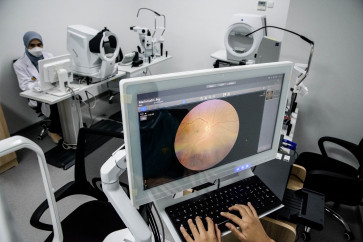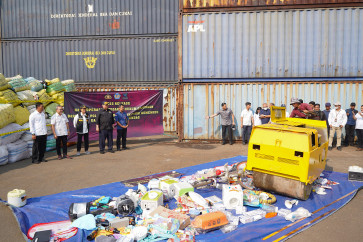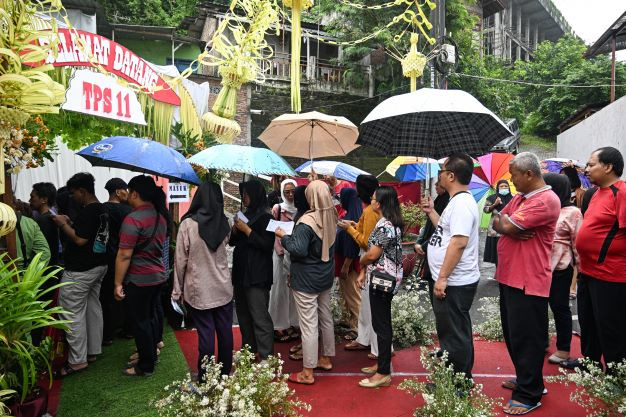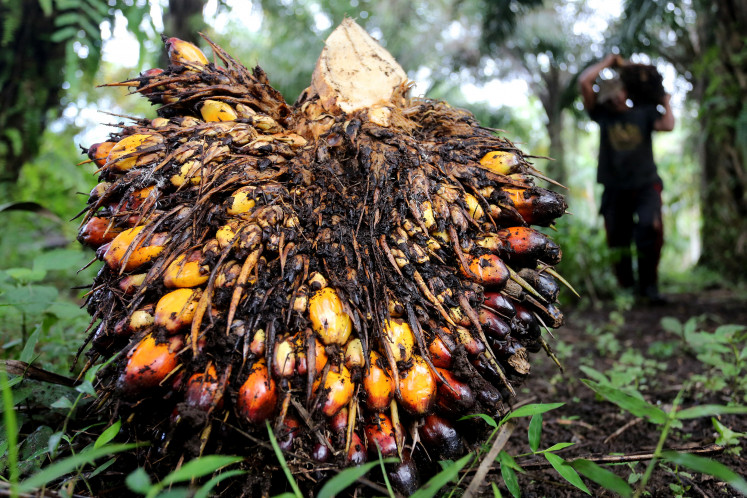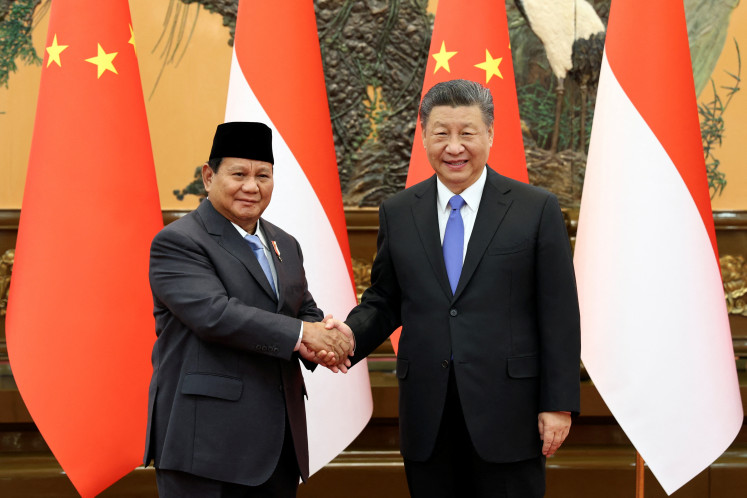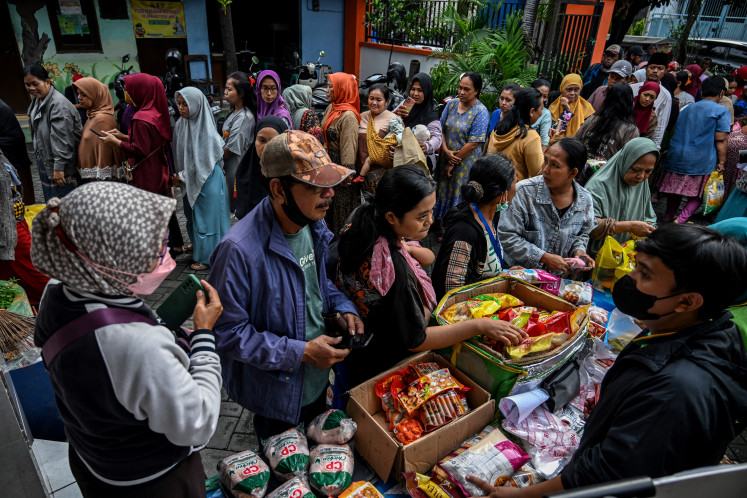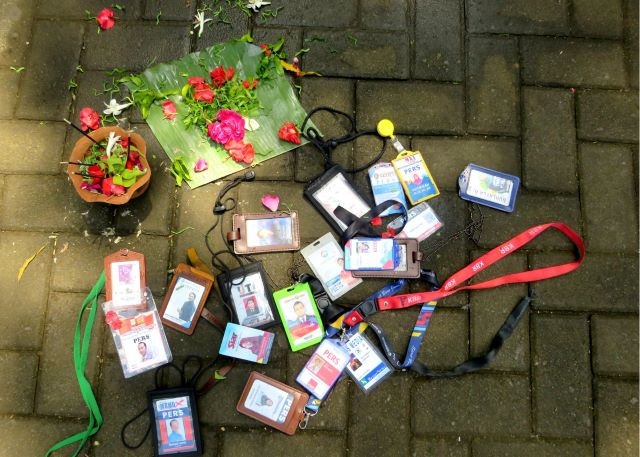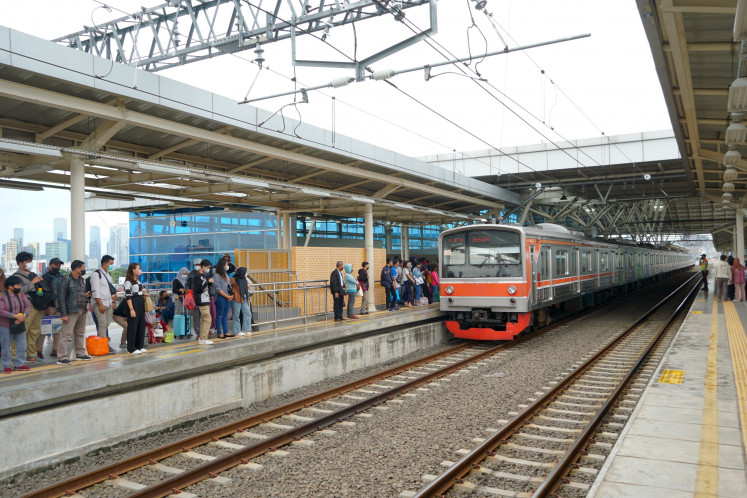The irony of 'the poor man's atomic weapon'
Chemical weapons again grabbed international attention since the extensive use of sarin during Syrian Civil War in August 2013 in the suburbs of the Ghouta region.
Change Size
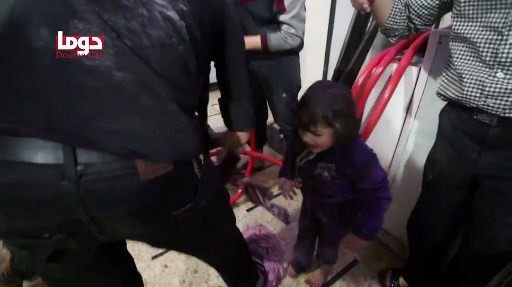 An image grab taken from a video released by the Douma City Coordination Committee shows unidentified volunteers spraying a girl with water at a make-shift hospital following an alleged chemical attack on the rebel-held town of Douma on April 7, 2018.
(AFP/Douma City Coordination Committee )
An image grab taken from a video released by the Douma City Coordination Committee shows unidentified volunteers spraying a girl with water at a make-shift hospital following an alleged chemical attack on the rebel-held town of Douma on April 7, 2018.
(AFP/Douma City Coordination Committee )
T
he first thing that comes to mind when we think of Weapons of Mass Destruction (WMDs) are probably the destructive effects of nuclear explosions. In terms of impact, nuclear warfare is the most catastrophic and the most sophisticated weapon ever created by humankind.
However chemical warfare is the most utilised type of WMDs in the 20th century. Since the Great War or World War I, until the most recent Syrian Civil War, chemical warfare, famously dubbed “the poor man's atomic weapon'”, has been taking the world by storm and poses an enormous challenge to international security.
Chemical weapons have been utilized in warfare throughout history. The first large-scale uses of chemical agents were during World War I, when the Germans released chlorine and phosgene gases on the battlefield. Soon after, all other parties began to develop their own arsenals and competed closely to bring even more lethal chemical agents onto the World War II battlefields. Inevitably, during the Cold War, both the United States and the Soviet possessed extensive stockpiles of chemical weapons.
Another significant employment of chemical weapons was during the Iraq-Iran war in the 1980s. With the help of its Western suppliers, Saddam Hussein used chemical weapons against Iranian combatants and non-combatants, inflicting enormous human costs.
Years after, also probably the turning point of chemical warfare, the Aum Shinrikyo doomsday cult perpetrated sarin nerve agent attacks in 1994 and 1995 in Matsumoto and Tokyo respectively. Before these incidents, chemical weapons were traditionally used by one state against another during wartime. The international community began to imagine the worst-case scenario – chemical weapons falling into the hands of non-state actors such as terrorist groups.
Chemical weapons again grabbed international attention since the extensive use of sarin during Syrian Civil War in August 2013 in the suburbs of the Ghouta region. The Ghouta chemical attack is considered the worst chemical incident in modern history since the Iran-Iraq war. Until now, both the Syrian government under President Bashar al-Assad and opposition forces denied responsibility for any chemical activities during the civil war. Consequently, the United Nations and Western countries have been paying close attention to chemical activities in Syria.
Arms control efforts have been taken to halt chemical weapons proliferation. The most significant arms control treaty regarding chemical warfare is probably the Chemical Weapons Convention (CWC) that entered into force in 1997.
The treaty prohibits the development, production, acquisition, stockpiling, and retention, transfer or use of chemical weapons by States Parties. To date, the treaty has 192 states-parties, including Indonesia. To ensure compliance of states-parties, the CWC mandated the Organization for the Prohibition of Chemical Weapons (OPCW) to monitor and inspect chemical facilities and activities. The OPCW is aimed at achieving total elimination of chemical agents under states-parties' jurisdiction and control.
Given the timeline of chemical warfare, in comparison with nuclear weapons, chemical weapons activities require an extensive investigation by the OPCW fact-finding mission to determine the perpetrator of chemical attacks in Syria.
We have also learned that chemical weapons are in fact much less expensive and are relatively easier to manufacture compared to nuclear bombs. The Japanese cult incidents and Islamic State chemical activities, which include chlorine and sulphur mustard agents in Syria, have intensified our fear as they have manifested the reality of chemical terrorism.
Indonesia's stance towards chemical weapons is no different from its commitment to nuclear disarmament. Indonesia has never attempted to obtain chemical weapons and is one of the most active opponents of WMDs proliferation.
Indonesia is known to possess non-persistent choking agents such as riot-control agents, which is permitted by the CWC. Jakarta ratified the CWC in 1998, and since then it has maintained a strong relationship with the OPCW. As a form of Jakarta's support for the OPCW, Indonesia hosted a three-day meeting last year in Bali, to push forward universalization of the convention of nuclear weapons. The regional forum was intended for the CWC signatories in the Asia Pacific.
Indonesia also has law No. 9 of 2008 on the use of chemical materials and ban on chemical weapons. Additionally, Jakarta formed a special unit in the Indonesian Military to handle threats related to WMDs as well as established the National Chemical Weapons Authority through President Regulation no. 19/2017.
As for chemical activities in Syria, Indonesia strongly condemns the use of chemical agents against civilians. However, unlike its Western counterparts, Jakarta has never officially accused the Syrian regime of using chemical weapons. Indonesia, however, supported the investigation and called for the UN involvement to solve the matters.
Given its accessibility, chemical weapons are prone to fall into the hands of non-state actors. Like any country Indonesia has to protect itself from chemical weapons use. Jakarta might not have a stockpile of chemical weapons, but it is of vital importance that the government prepare itself for the worst possible scenario of chemical terrorism.
***
The writer earned her master’s degree from King’s College London’s War Studies Department. She recently presented her paper on an Indonesian perspective on proliferation at the 2017 International Student/Young Pugwash Conference in Astana, Kazakhstan. Her research interests include Indonesian leadership in nuclear non-proliferation and disarmament as well as Hezbollah’s military strategy and tactics in the 1985-2000 wars against Israel.
---------------
We are looking for information, opinions, and in-depth analysis from experts or scholars in a variety of fields. We choose articles based on facts or opinions about general news, as well as quality analysis and commentary about Indonesia or international events. Send your piece to academia@jakpost.com.


